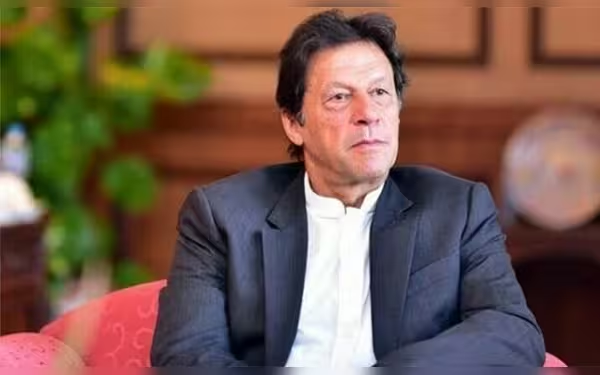Saturday, November 16, 2024 05:37 PM
Imran Khan Exempted from Military Trial by Islamabad High Court
- IHC confirms no military trial for Imran Khan.
- Government assures legal procedures will be followed.
- Court seeks information on cases against Bushra Bibi.
 Image Credits: dawn
Image Credits: dawnIslamabad High Court rules out military trial for Imran Khan, ensuring legal procedures are followed amid ongoing political tensions.
In a significant development, the Islamabad High Court (IHC) has addressed the concerns surrounding former Prime Minister Imran Khan's potential military trial. On Tuesday, the court disposed of a petition filed by Khan, who sought to challenge the possibility of being tried in a military court. The government clarified that there are currently no plans for his court-martial, stating that any such action would only be taken after following the necessary legal procedures.
During the hearing, IHC Justice Miangul Hassan Aurangzeb presided over the case. Additional Attorney General Barrister Munawar Iqbal Duggal represented the federal government and responded to the court's inquiries regarding Khan's fears of facing a military tribunal. Duggal assured the court that the government has not made any decisions regarding Khan's court martial related to the events of May 9, which have been a point of contention in recent months.
However, Duggal did mention that if the competent authority decides to proceed with a military trial, the appropriate legal channels would be followed, including obtaining permission from the relevant judicial magistrate. This statement provides some reassurance to Khan and his supporters, who have been anxious about the implications of a military trial.
Imran Khan's petition was primarily focused on the cases registered against him in connection with the violence that occurred on May 9. This date has become synonymous with unrest and political turmoil in Pakistan, leading to widespread discussions about the rule of law and the rights of individuals facing legal challenges.
In a related matter, the IHC also sought information regarding the cases filed against Khan's wife, Bushra Bibi. Justice Aurangzeb, after a preliminary review, issued notices to key officials, including the Secretary of Interior and the Inspector General of Police, indicating that the court is taking a comprehensive approach to the legal issues surrounding the Khan family.
This situation highlights the ongoing political and legal battles in Pakistan, where the intersection of law and politics often leads to complex scenarios. As the legal proceedings unfold, it remains crucial for the public to stay informed about their implications. The outcome of these cases could have far-reaching effects on the political landscape of the country, influencing not only the future of Imran Khan but also the broader discourse on governance and justice in Pakistan.
While the immediate threat of a military trial for Imran Khan has been alleviated for now, the legal challenges he faces are far from over. The developments in this case will be closely monitored, as they may set important precedents for how political figures are treated under the law in Pakistan. As citizens, it is essential to engage with these issues, understanding their significance in shaping the future of democracy and justice in the nation.













